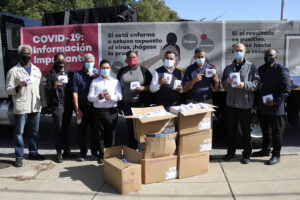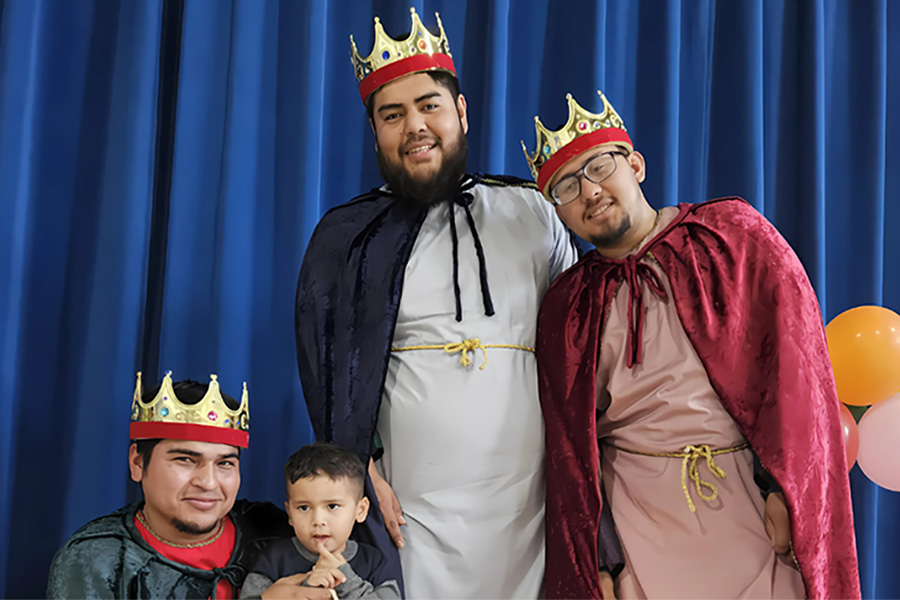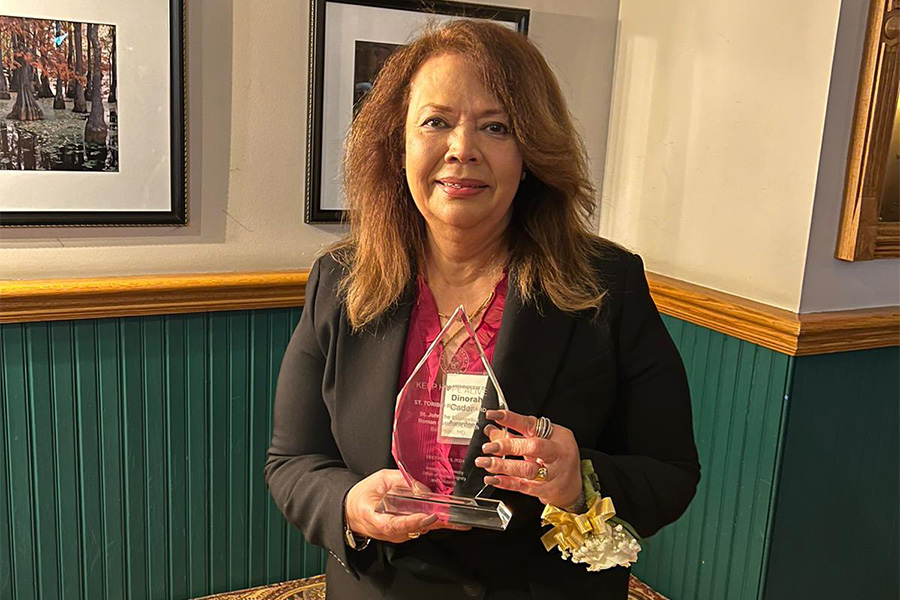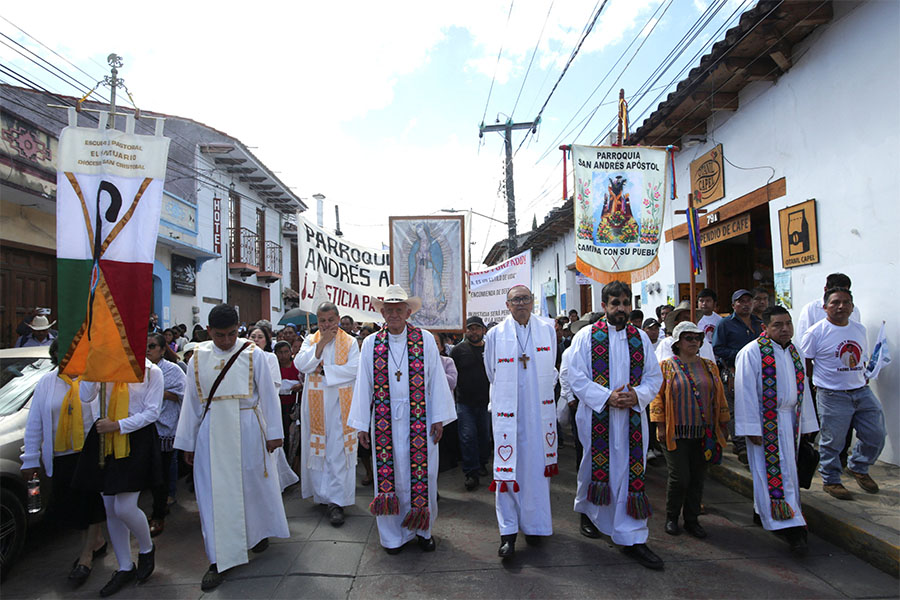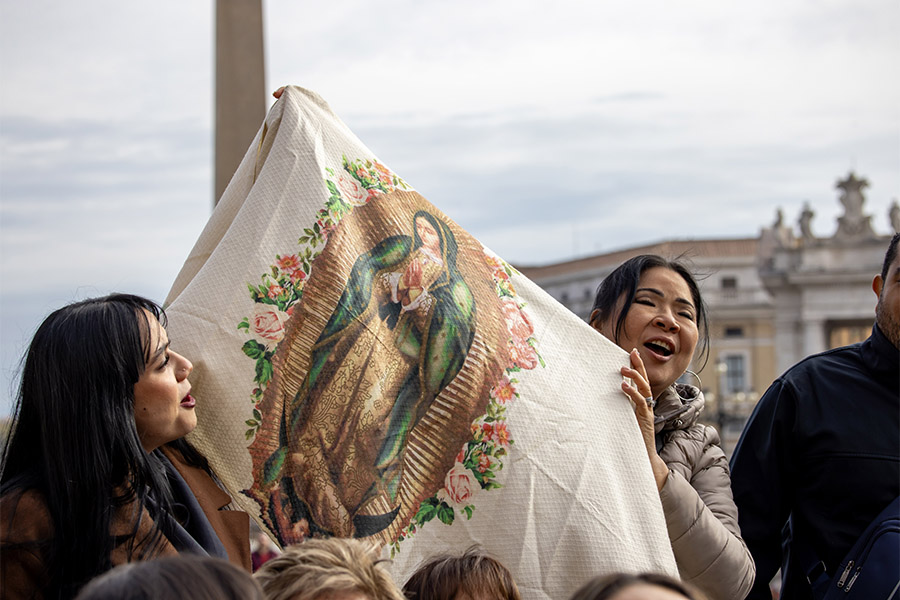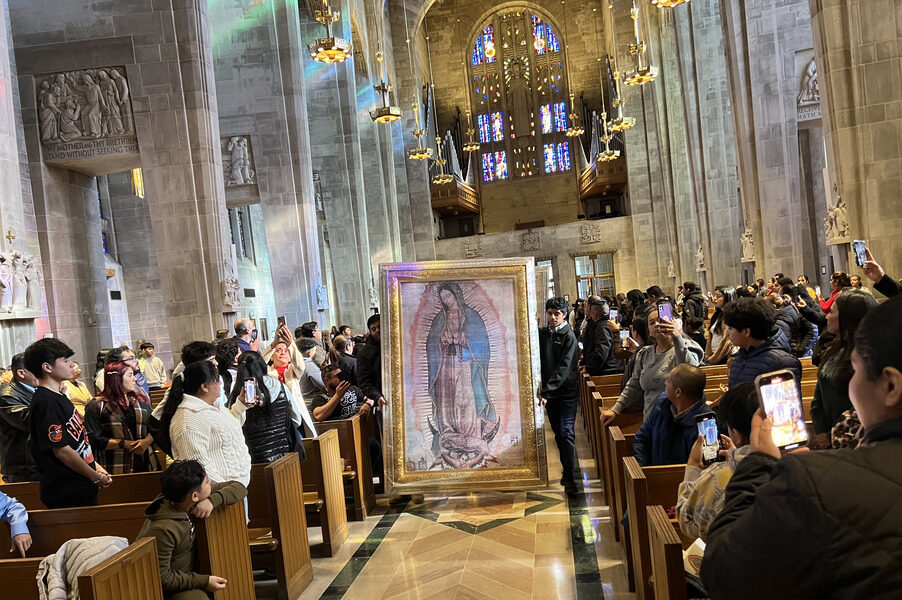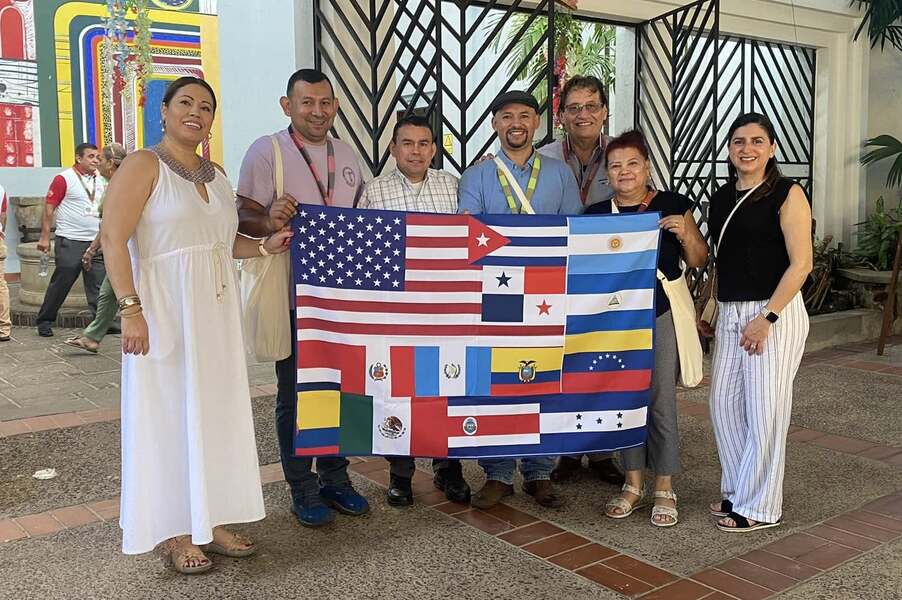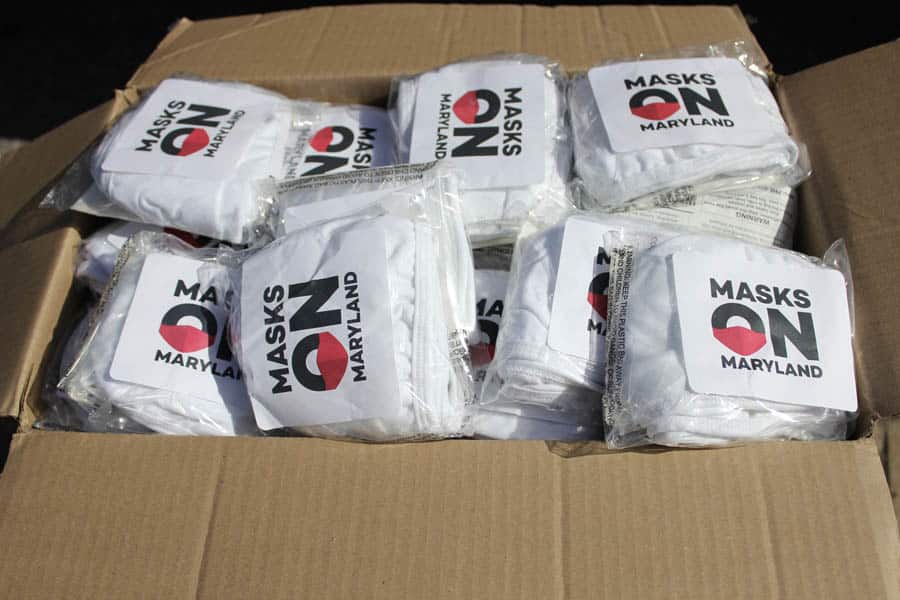
For the native Spanish speakers around Patterson Park, Highlandtown and Canton, the sounds echoing through their neighborhoods this week may remind them of another home.
Reminiscent of political, commercial and public education campaigns common in Latin American countries, a sound truck will drive loops through the 21224 ZIP code Oct. 19-24, repeating messages from the Maryland Department of Health.
“Your mask protects others. Their mask protects you.”
“Stay six feet away.”
Those and other slogans in English and Spanish about preventing the spread of COVID-19 – and where to get assistance if you are sick or think you might have been infected – will sound through the section of Baltimore. The large flatbed truck adorned with colorful signs and carrying a powerful loudspeaker system is part of a collaborative effort coordinated by the state health department’s Hispanic Community Support Task Force. Other partners in the effort include Casa de Maryland, the NAACP and Catholic Charities of Baltimore.
At an Oct. 18 kickoff for media at Patterson Park, Pedro Ortega, a member of the Knights of Columbus from Highlandtown’s Sacred Heart of Jesus/Sagrado Corazón de Jesús Parish, talked about his lengthy illness with COVID-19.
“I was in the hospital for a month,” Ortega said. “For eight weeks I didn’t work.” The construction worker’s wife, daughter and grandson also got sick, with his wife spending one night in the hospital, too.
The immigrant from Ecuador thinks he might have caught the virus at work, on a construction site, but he really doesn’t know.
He and other Knights from Sacred Heart had come out to help support the public education effort by distributing free face masks provided by the state.
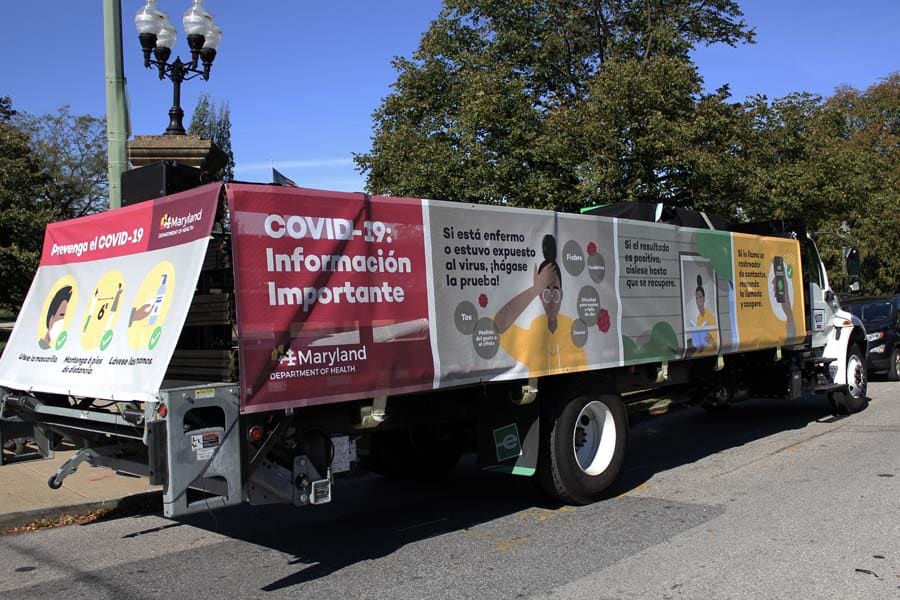
Another Knight, Jose Melo, said that as he delivers donated food to families in the neighborhood each week he sees many, many people who aren’t taking precautions such as wearing masks and keeping their distance from others. He also sees “a lot of depression, people crying,” as volunteers bring them essentials. It’s been a long, difficult seven months of isolation for many people, he noted.
Dr. Mark Martin, deputy director of the health department’s Office of Minority Health and Health Disparities, told the Catholic Review this is the department’s first time using a sound truck – officially called a mobile education unit – in a public-education campaign. There has been interest in the community for months in trying something creative to help people understand that simple measures can help protect everyone.
With infection rates rising around Maryland, as elsewhere in the country, the timing couldn’t be better for the sound truck’s launch. As of Oct. 19, the 21224 ZIP code had 2,117 reported cases of COVID-19, second only in the state to the Silver Spring/Langley Park ZIP code, another area densely populated by immigrants.
In 21224, the “positivity rate,” or the rate of positive cases per number of tests for the coronavirus which causes COVID-19, has always been above average for Maryland, Martin said. The neighborhood where the truck will circulate has a lot of essential workers at the lower end of the economic scale. “They can’t take paid time off if they get sick.”
Many of those essential workers also live in densely packed households, where it’s impossible for someone who gets sick to adequately isolate from others, he noted. “All that contributes to rising positivity rates.” The rate in the 21224 ZIP code has not been below 14 or 15 percent since the spring. The World Health Organization recommends rates below 5 percent for 14 days before normal activities gradually resume.
Auxiliary Bishop Bruce Lewandowski, C.Ss.R., pastor of Sacred Heart, said the parish has had 36 deaths from COVID-19, many of them people between the ages of 30 and 50, in their “prime working years.” Among the problems leading to that difficult number of lost lives is that people often wait too long to get tested and treat their infections appropriately.
“We’ve had people collapse in the testing line,” Bishop Lewandowski said. Sacred Heart has hosted several testing clinics, with more scheduled. He said each test clinic drew 400-600 people.
Yet a pervasive problem in his large parish is poor understanding of how serious the spread of the coronavirus which causes the disease is in Maryland, he said.
“People know more about what’s going on in their home country,” he said. “They can tell you how many people have died in El Salvador, for example, but they can’t tell you what the situation is here.”
The Baltimore area lacks Spanish-language broadcast radio stations, though there are some popular local internet-based radio stations and some Washington-area broadcast stations can be picked up, he said. The sound truck is intended to break through the lack of local information in a way that will be familiar to people who grew up in countries where all kinds of official information and advertising is commonly conveyed right in their neighborhoods that way, Bishop Lewandowski said.
Read more about the Hispanic community
Copyright © 2020 Catholic Review Media
